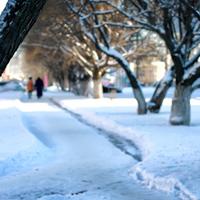Snow in Bolivia and Peru – level 2
||玻利維亞||秘魯|
||Bolivien|||
||Болівія|||
||Bolivia||Perú|
الثلوج في بوليفيا وبيرو - المستوى 2
Schnee in Bolivien und Peru - Stufe 2
Χιόνι στη Βολιβία και το Περού - επίπεδο 2
Snow in Bolivia and Peru – level 2
Nieve en Bolivia y Perú - nivel 2
Neige en Bolivie et au Pérou - niveau 2
Neve in Bolivia e Perù - livello 2
ボリビアとペルーの雪–レベル2
볼리비아와 페루의 눈 - 레벨 2
Sniegas Bolivijoje ir Peru - 2 lygis
Neve na Bolívia e no Peru - nível 2
Снег в Боливии и Перу – уровень 2
Bolivya ve Peru'da kar - seviye 2
Сніг у Болівії та Перу - рівень 2
玻利维亚和秘鲁降雪——2 级
玻利維亞和秘魯降雪 – 2 級
Last week, something unusual happened in South America when snow fell in Bolivia and Peru.
|||||||||||en|||
|||uncommon|||||||||||
|||incomum|||sul||||||||
|||||||Amerika|||||||Peru
|||이상한|||||||||||
||qualcosa di insolito|insolito|||Sud America|||neve|cadde||||
|||незвичайне|||||||||||
||||||||||napadl||||
||||||||||||||Perú
في الأسبوع الماضي ، حدث شيء غير عادي في أمريكا الجنوبية عندما تساقطت الثلوج في بوليفيا وبيرو.
Last week, something unusual happened in South America when snow fell in Bolivia and Peru.
La semana pasada ocurrió algo insólito en Sudamérica: cayó nieve en Bolivia y Perú.
先週、ボリビアとペルーで雪が降ったとき、南アメリカで何か変わったことが起こりました。
In Bolivia, temperatures dropped below zero, which created perfect conditions for snowfall.
|||упали||||||||
|||fell|under|||created|ideal|||snow accumulation
|||caíram|abaixo|||||||nevasca
|||||||||||降雪
|||sanken||null||||||Schneefall
|||||||만들었다|완벽한|조건||눈fall
||temperature||||che|creato||condizioni||nevicata
|||||||||||降雪
||||нижче|нуль|||ідеальні|||снігопад
|||||||||pogoje||
||||pod nulu|||||podmínky||sněžení
|Bolivia|temperaturas|cayeron|bajo|cero||||||nevada
In Bolivia, temperatures dropped below zero, which created perfect conditions for snowfall.
En Bolivia, las temperaturas descendieron por debajo de cero, lo que creó las condiciones perfectas para la caída de nieve.
ボリビアでは、気温がゼロを下回り、降雪に最適な条件を作り出しました。
В Боливии температура упала ниже нуля, что создало идеальные условия для снегопада.
Local people were very excited about the snow because they never saw it before.
||||взволнованы|||||||||
||||신났다|||||||||
||||радіти|||||||||
||||navdušeni|||||||||
Local people were very excited about the snow because they never saw it before.
Los lugareños estaban muy emocionados con la nieve porque nunca la habían visto antes.
地元の人たちは雪を見たことがなかったのでとても興奮していました。
They threw snowballs at each other in the streets.
|кинули|||||||
|jogaram|bolas de neve||||||
||Schneebälle||||||
|lanciavano|palle di neve||||||strade
|кидали|сніжки||||||вулицях
|metali|snežake||||||
||bolas de nieve||||||
They threw snowballs at each other in the streets.
Se lanzaban bolas de nieve por las calles.
彼らは通りでお互いに雪玉を投げました。
Они бросали друг в друга снежки на улицах.
The situation was similar in Peru where snow covered landscape and roads.
|||похожая|||||покрывал|||
|||comparable|||||blanketed|snow-covered terrain||highways
|||||||||||estradas
|||||||||地貌||
|||ähnlich|||||bedeckte|Landschaft||Straßen
|||유사한|||||덮인|풍경||
|||||||||paesaggio innevato||
|||||||||景观||
|ситуація||схожа|||||покривало|пейзаж||дороги
|||similar||Perú||nieve|cubría|paisaje||
The situation was similar in Peru where snow covered landscape and roads.
La situación era similar en Perú, donde la nieve cubría el paisaje y las carreteras.
雪が風景や道路を覆っているペルーでも状況は似ていました。
The snow stranded cars, and people could not travel.
||заставил застрять||||||
||left stuck||||||
||parou||||||
||困住||||||
||갇힌||||||
||bloccato||||||
||застрягли||||||подорожувати
||obtičala||||||
||uvěznila||||||
||varadas||||||
The snow stranded cars, and people could not travel.
La nieve dejó varados los coches y la gente no podía viajar.
雪で立ち往生した車、そして人々は旅行することができませんでした。
In both countries, snowfall is not usual, except for the mountain.
||||||typical|with the exception of|||
|||queda de neve|||||exceto||montanha
||||||üblich||||Berg
||||||일반적이지 않다|제외하고|||
|||sníh||||s výjimkou|||
|||nevada|||||||
In both countries, snowfall is not usual, except for the mountain.
En ambos países, las nevadas no son habituales, salvo en la montaña.
どちらの国でも、山を除いて降雪は普通ではありません。
Temperatures can drop to the below zero, but snow is common at elevations of more than 3,800 meters.
||||||||||||высотах||||
||||||||||||high altitudes||||
氣溫|||||零下|||||||海拔高度||||
||sinken|||unter|||||||Höhen||||Metern
||||||||||일상적이다||고도||||
||||||||||||altitudini||||metri
||||||||||pogost||višinah||||
teploty||||||||||||nadmořských vý||více||
||||||cero||||||elevaciones||||metros
Temperatures can drop to the below zero, but snow is common at elevations of more than 3,800 meters.
Las temperaturas pueden descender por debajo de cero, pero la nieve es habitual en cotas superiores a los 3.800 metros.
気温はゼロ以下に下がる可能性がありますが、標高3,800メートルを超えると雪がよく降ります。
Температура может опускаться до нуля, но на высоте более 3800 метров часто бывает снег.
Difficult words: condition (the existing situation which has an impact on how something happens), stranded (when someone or something is stuck in a place, and it is not possible to leave), elevation (how high above the ground something is).
||situation||||||||||||||||||||||||||||||||||||
|||||||||||||||||||||||||||||||độ cao|||||||
||Bedingung|||||||Auswirkung||||||||||||||||||||||Höhe|||obenstehend||||
||||esistente|||||impatto||||succede|||||||||||||||Possibile|||altitudine sopra terra|||||terreno, suolo, terra||
||||||||||||||uvíznout||||||||||||||možné|||výška|||||||
|||||||||impacto|||||||||||atrapado|||||||||||elevación|||||suelo||
Difficult words: condition (the existing situation which has an impact on how something happens), stranded (when someone or something is stuck in a place, and it is not possible to leave), elevation (how high above the ground something is).
Palabras difíciles: condición (la situación existente que tiene un impacto en cómo sucede algo), varado (cuando alguien o algo está atascado en un lugar, y no es posible salir), elevación (qué tan alto sobre el suelo está algo).
難しい言葉:状態(何かが起こる方法に影響を与える現在の状況)、立ち往生(誰かまたは何かが場所に立ち往生していて、離れることができないとき)、標高(何かが地面からどれくらい高いか)。
You can watch the original video in the Level 3 section.
You can watch the original video in the Level 3 section.
Puedes ver el video original en la sección de Nivel 3.

